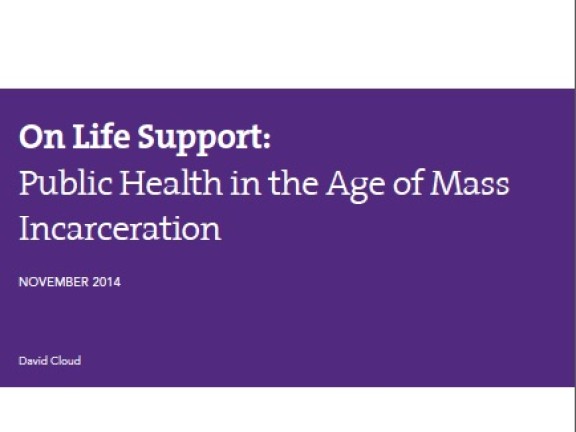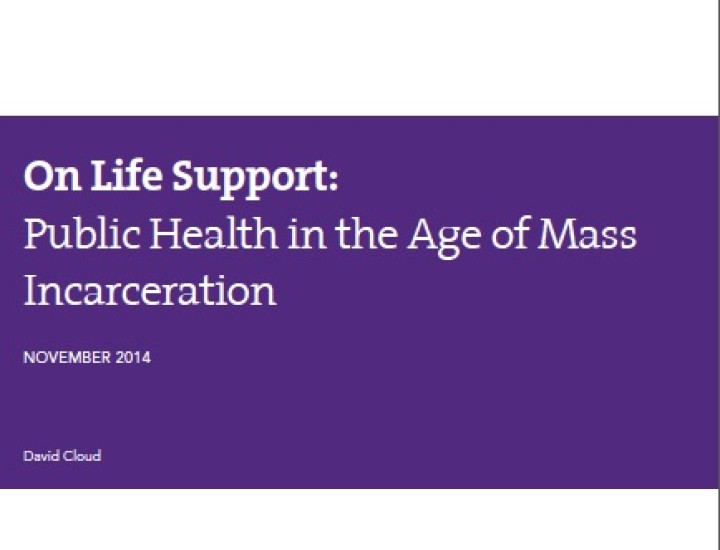New Report Documents the Impact of Mass Incarceration on Public Health (2014)

The Vera Institute of Justice has issued a new report describing the public health implications of mass incarceration and the potential benefits of the Affordable Care Act (ACA) in addressing the needs of affected communities. Written by David Cloud, senior program associate at Vera’s Substance Use and Mental Health Program, On Life Support: Public Health in the Age of Mass Incarceration, summarizes what is known about the burden of disease among people who experience incarceration, identifies the conditions of confinement that are deleterious for health, and discusses the various ways in which the continuous expansion of the criminal justice system has contributed to health disparities over the past 40 years.
Mass incarceration has become a major contributor to poor health, especially in low income communities. Since the 1970s, the correctional population in the U.S. has grown by 700 percent. From 1982 to 2001 state expenditures on corrections increased each year, outpacing overall budget growth, and swelling from $15 billion to $53.5 billion, adjusted for inflation. Since then, annual expenditures on incarceration have hovered around $50 billion.
According to the report, each year jails across the country process 11 million admissions, and almost 700,000 are released from prison back into their communities. But there is little or no coordination of healthcare between corrections departments and the community health providers.
“For people with chronic physical conditions or a serious psychiatric condition requiring regular care management, this service gap increases the chance that they will discontinue treatment regimens they started while incarcerated, greatly endangering the health of these individuals. For people with a history of injection drug use, failure to promote care continuity upon release increases risk of relapse, overdose, and risky behaviors that spread HIV/AIDs and HCV disease in communities.”
Using health statistics collected by the NYC Department of Health and Mental Hygiene (DOHMH) and the Justice Mapping Center, the report shows that the highest rates of incarceration and the greatest rates of disease are concentrated in the same New York City neighborhoods. These same neighborhoods also have disproportionately high infant mortality rates, HIV incidence, STD prevalence, asthma rates, and hospitalizations due to assault.
The report says the Affordable Care Act (ACA) creates critical opportunities for states, local governments, and healthcare stakeholders to greatly expand the capacity of their community health systems. Such and expansion would better meet the needs of underserved populations, curb the flow of medically-underserved populations into jails and prisons, pursue collaborative programming to plug service gaps between health and justice systems, and ensure that people are able to receive services in the community that are essential for health.”
On Life Support: Public Health in the Age of Mass Incarceration is the first in a series of publications released by the Vera Institute for Justice to inform policymakers on opportunities created by the ACA to enhance public safety and reform sentencing and corrections practices by advancing public health.
